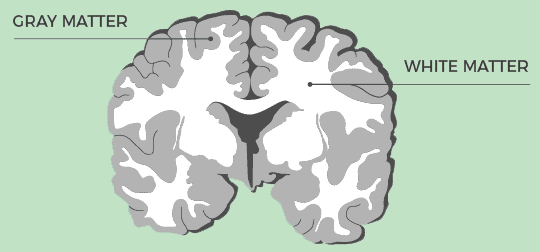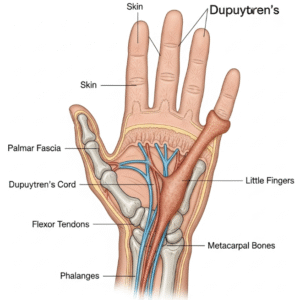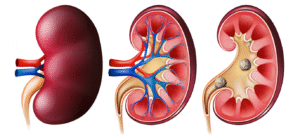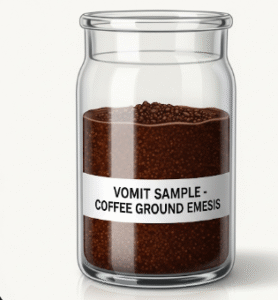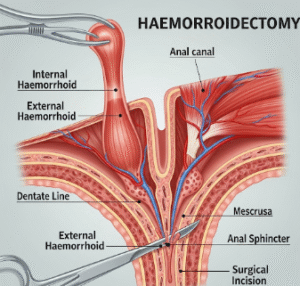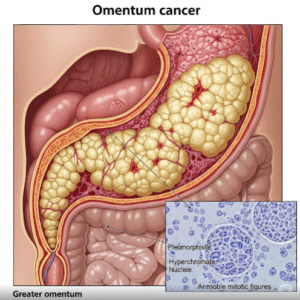Overview
White Matter Disease (WMD), also called leukoaraiosis, refers to damage or degeneration of the white matter in the brain. White matter consists of nerve fibers (axons) coated with myelin, which help transmit signals between brain regions. This condition is often associated with aging and vascular risk factors and may lead to cognitive impairment, difficulty walking, and balance problems. It is commonly seen on brain imaging such as MRI or CT scans.
What is White Matter Disease?
White Matter Disease is a neurological condition where the white matter in the brain becomes damaged due to chronic small vessel disease or other underlying factors. This disrupts communication between different parts of the brain, affecting functions such as memory, balance, and coordination. WMD can be mild and asymptomatic in early stages, but progressive disease is associated with vascular dementia, mobility issues, and stroke risk. It is not a single disease but a manifestation of various pathologies affecting cerebral white matter.
Symptoms
Symptoms of White Matter Disease vary depending on severity and brain regions affected. Common signs include:
- Memory loss or cognitive decline
- Slowed thinking or processing speed
- Difficulty walking or frequent falls
- Urinary urgency or incontinence
- Mood changes, such as depression or apathy
- Poor coordination or balance
- Mild speech or language difficulties
- In advanced stages: vascular dementia
Causes
The main cause of White Matter Disease is chronic ischemia (reduced blood flow) affecting small blood vessels in the brain. This leads to the gradual deterioration of the protective myelin around nerve fibers.
Other contributing causes include:
- High blood pressure (hypertension)
- Diabetes mellitus
- Smoking
- High cholesterol
- Aging
- Cerebral small vessel disease
- Autoimmune conditions (e.g., multiple sclerosis)
- Genetic factors (e.g., CADASIL)
Risk Factors
Risk factors that increase the likelihood of developing WMD include:
- Age over 60
- Hypertension
- Diabetes
- Obesity
- Sedentary lifestyle
- Smoking and alcohol use
- History of stroke or cardiovascular disease
- Genetic predisposition to neurological disorders
Complications
If left unmanaged, White Matter Disease can lead to serious health outcomes:
- Increased risk of stroke
- Vascular dementia
- Gait instability and falls
- Permanent cognitive impairment
- Disability or loss of independence
- Mood disorders such as anxiety and depression
Prevention
While white matter changes from aging cannot be entirely prevented, risk reduction is possible through lifestyle and medical management:
- Control blood pressure, diabetes, and cholesterol
- Exercise regularly to improve brain and cardiovascular health
- Quit smoking and reduce alcohol intake
- Eat a brain-healthy diet (rich in omega-3s, vegetables, and whole grains)
- Treat sleep disorders such as sleep apnea
- Monitor for cognitive decline with regular check-ups in older adults
Treatment Options in Korea
South Korea provides advanced neurological care for managing White Matter Disease and preventing progression. Available options include:
- MRI and CT imaging for diagnosis and monitoring of white matter changes
- Cognitive assessments and neuropsychological testing
- Medications to control underlying conditions like hypertension and diabetes
- Physical and occupational therapy to improve balance and motor function
- Speech and memory therapy for cognitive rehabilitation
- Stroke prevention programs, including anticoagulants or antiplatelet therapy if indicated
- Specialized care at top institutions such as Samsung Medical Center, Seoul National University Hospital, and Asan Medical Center
With multidisciplinary support and early intervention, many individuals with White Matter Disease in Korea maintain a good quality of life and avoid serious neurological decline.

